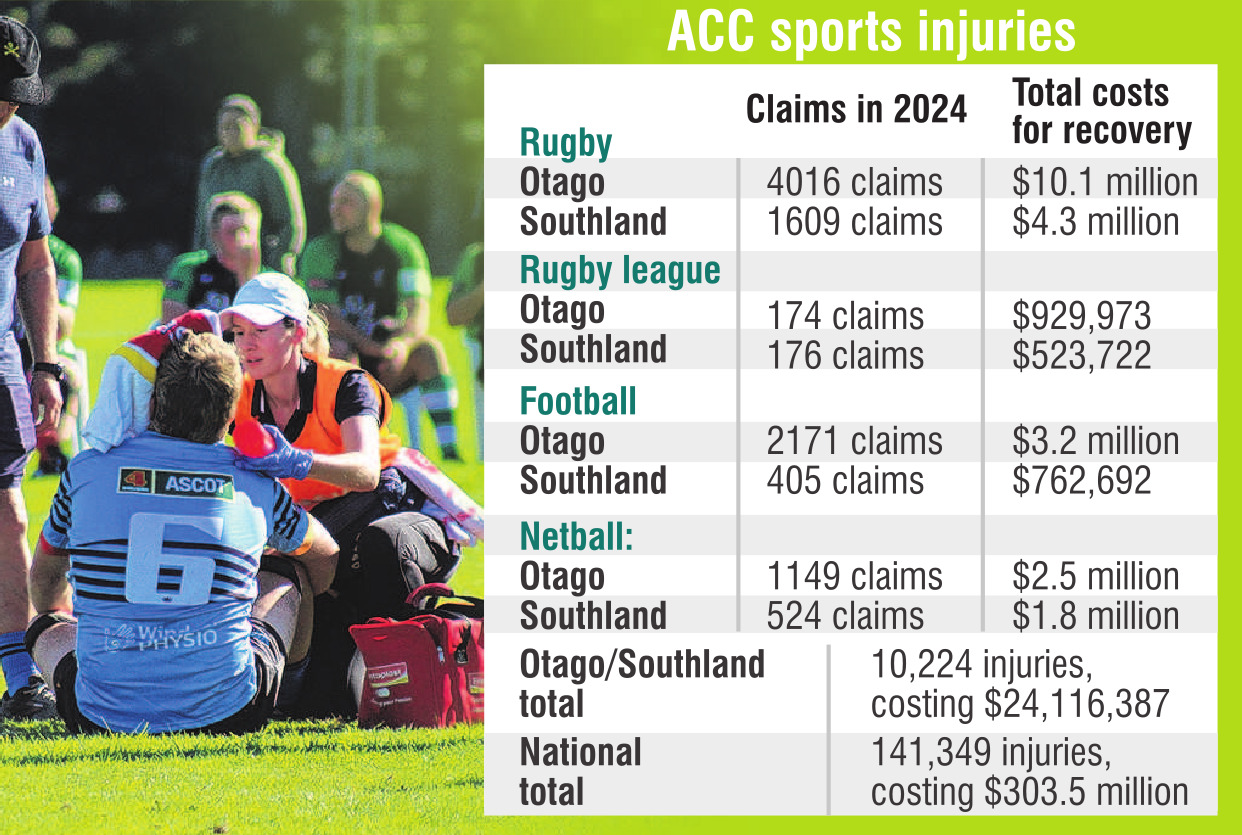
More than 10,224 players made claims for sports-related injuries in Otago and Southland during 2024, costing the taxpayer more than $24.1 million to help them recover.
And ACC says those numbers are increasing.
So, as the first matches of winter sport get under way, ACC is reminding players it is a long season, and they will need to be diligent about training and focused on safety if they want to make it through to the end.
ACC injury prevention leader James Whitaker said the organisation wanted to help coaches, supporters and players to prevent injuries, so they could get the most out of their sport and enjoy the whole season.
"It’s really important to take a step back and think about how you can best prepare yourself for the upcoming season — whether that be fitness, skill work, or physical conditioning specific to your sport."
An effective warm-up and cool-down would also reduce the risk of injury, he said.
"A dynamic warm-up should be done before every training and game, the same with a cool-down after the game/training to gradually bring your body back to a resting state, to help your body recover.
"This is also a good time to include static stretching."
He said injury claims for netball, football, rugby, rugby league and basketball peaked around May, and winter sports-related injury claims had consistently gone up over the past five years.
From 2020 to 2024, ACC data showed 106,099 netball claims, which cost $181.4 million to help people recover; 262,700 rugby claims ($566.5m); 204,383 football claims ($286.5m); and 35,695 rugby league claims ($103.8m).
In 2024, ACC accepted 12,045 claims for sports-related concussion, which came at a cost of $81m to help people recover.
However, more concerningly, ACC research showed about 1100 sports-related concussions went unreported each year.
Mr Whitaker said it was important to look out for concussion and to follow the national concussion guidelines for community sport if a player had a suspected concussion.
When a player suffers a concussion, they must be symptom-free for 14 days post-injury, before a graduated return to play.
They must also complete a minimum period of 21 days away from full competition before clearance to return.
Clearance from a health practitioner experienced in concussion management, was strongly recommended prior to return to play, he said.
"If you are playing and you see someone is showing signs of concussion, then encourage them to follow the guidelines and leave the field or activity."
Advertisement













